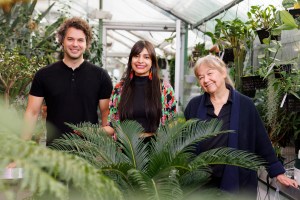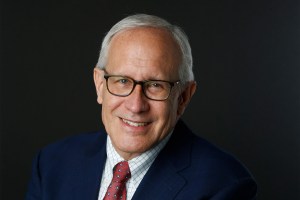All articles
-
Nation & World
Setting school priorities: Care for children, families first
In the second episode of Education Now, a new initiative by the Harvard Graduate School of Education, host Richard Weissbourd talks to Sonja Santelises, CEO of Baltimore City Public Schools, and Anu Ebbe, principal of Shorewood Hills Elementary School in Madison, Wis.

-
Campus & Community
Respected teacher and administrator Richard M. Hunt dies at 93
Richard McMasters Hunt, a faculty member in social studies for 42 years and University Marshal for two decades, died on April 10 at the age of 93.
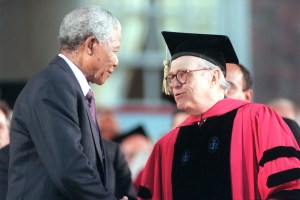
-
Science & Tech
Water beast
New paper argues the Spinosaurus was aquatic, and powered by predatory tail.
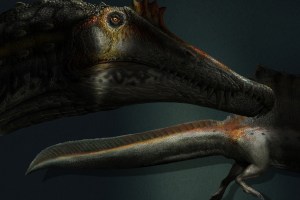
-
Science & Tech
CRISPR-based technology spots COVID-19
The CRISPR-based molecular diagnostics chip’s capacity ranges from detecting a single type of virus in more than 1,000 samples at a time to searching a small number of samples for more than 160 different viruses, including the COVID-19 virus.

-
Work & Economy
Melissa Dell wins 2020 Clark Medal
Harvard economist Melissa Dell has received the 2020 John Bates Clark Medal. The annual award, administered by the American Economic Association, honors an “American economist under the age of forty who is judged to have made the most significant contribution to economic thought and knowledge.”
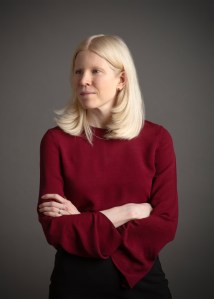
-
Campus & Community
Studying COVID-19 in real time
How some Harvard professors are integrating the coronavirus crisis into their curricula.
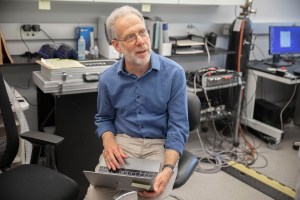
-
Science & Tech
Wyss-designed swabs enter human trials for COVID-19
The Wyss Institute has collaborated in the design of a new low-cost nasopharyngeal swabs that can be manufactured quickly to address the international shortage of swabs for testing and research.
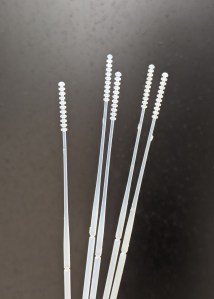
-
Work & Economy
American economy on the bubble
As governors weigh when to allow businesses to reopen, Harvard faculty discuss which industries have been helped and hurt by the pandemic, and some of the hurdles surviving businesses will face to reverse their fortunes.
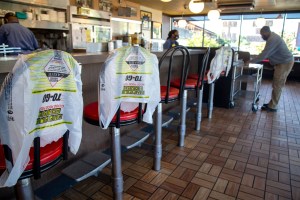
-
Health
In the trenches
Physicians caring for different populations in three hospitals describe life in the midst of a pandemic.

-
Campus & Community
Harvard, by the books
It didn’t turn out at all the way they thought it would. Being asked to quickly leave campus and return home last month amid the mushrooming coronavirus outbreak was painful…
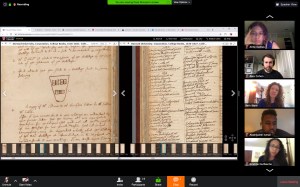
-
Health
A silent epidemic
Early data from peer-reviewed studies suggest that one-third of hospitalized COVID-19 patients of all ages, and two-thirds of those with severe disease, show signs of delirium.
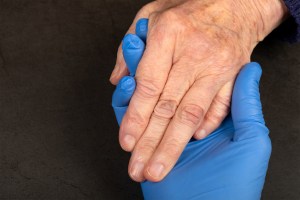
-
Arts & Culture
After America reopens, a healthy roadmap for theater
In collaboration with the Harvard T.H. Chan School of Public Health, the American Repertory Theater is working on how it and other theaters can re-emerge in the wake of the current health crisis, uniting the community through great art while keeping audiences, performers, and theater staffers safe. It’s called “The Roadmap to Recovery and Resilience…
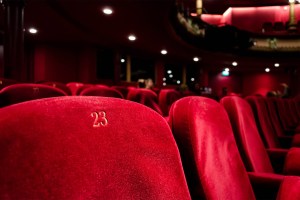
-
Nation & World
Mental health in Africa amid pandemic
As cases of coronavirus surge in Africa, the challenges experienced elsewhere are compounded by social factors and a shortage of caregivers.
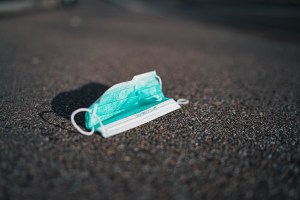
-
Health
A five-layered defense for workplace reopening
Joseph Allen laid out how existing building safety guidelines might be adapted to make workplaces safer in the age of COVID.

-
Arts & Culture
After America reopens, a healthy roadmap for theater
In collaboration with the Harvard T.H. Chan School of Public Health, the American Repertory Theater is working on how it and other theaters can re-emerge in the wake of the current health crisis, uniting the community through great art while keeping audiences, performers, and theater staffers safe. It’s called “The Roadmap to Recovery and Resilience…

-
Campus & Community
Harvard launches emergency grant program for Allston-Brighton
Harvard has launched a new grant program that will provide emergency funding to nonprofit organizations responding to COVID-19-related community needs serving the Allston-Brighton neighborhood of Boston.
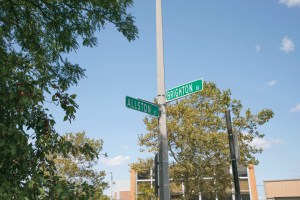
-
Campus & Community
Finding creative ways to maintain campus bonds remotely
Campus friend groups remain close, even if not geographically. So they’ve had to make adjustments to keep in touch.

-
Campus & Community
From taking notes in the classroom to helping the front lines
Students in Mark Fagan’s supply chain management course spent the spring semester using their skills to help the front lines of the COVID-19 crisis.
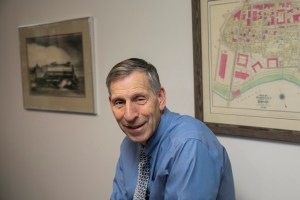
-
Campus & Community
New members of the American Academy Arts & Sciences announced
The American Academy of Arts & Sciences announced its newest members, which include 15 members of Harvard faculty and staff.
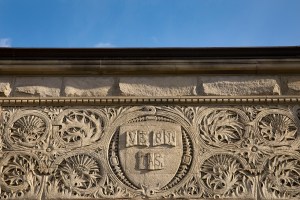
-
Campus & Community
New dean for School of Dental Medicine
William V. Giannobile, an alumnus of the Harvard School of Dental Medicine, has been named its new dean. An expert in periodontics and oral medicine, Giannobile succeeds Bruce Donoff, who stepped down from the post in 2019 after 28 years.
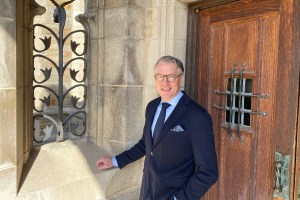
-
Campus & Community
History at your fingertips
The first Harvard Library-wide crowdsourcing transcription project is seeking volunteers to help transcribe the handwritten materials from the University’s 18th-century North America Collection.
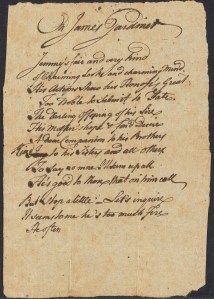
-
Nation & World
How and why the Supreme Court made climate-change history
Richard Lazarus discusses his new book, which tells the story of a 2007 landmark environmental case.
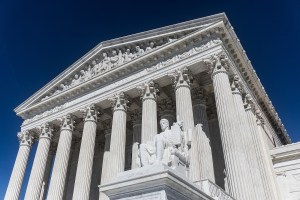
-
Campus & Community
Dancing with myself
Virtual workout classes help the community stay connected and healthy while social distancing.

-
Nation & World
What scares you most about climate change?
Harvard faculty talk about their concerns and fears about climate change as the world commemorates Earth Day’s 50th anniversary.

-
Nation & World
No ‘silver lining’ for the climate
On the 50th anniversary of Earth Day, law professor reflects on the state of U.S. climate change regulation and the impacts of COVID-19.
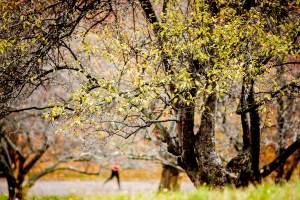
-
Campus & Community
Why the Arboretum remains open
Director William “Ned” Friedman explains the rationale for keeping the Arboretum open during the pandemic.
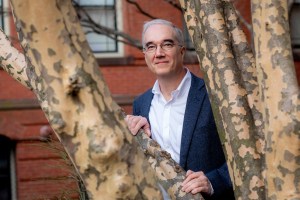
-
Campus & Community
Want us to invest? Or to keep our investment? Get greener
John Campbell discusses Harvard’s new plan to have its endowment reflect net-zero greenhouse-gas emissions by 2050.
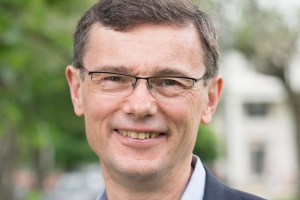
-
Health
Breakthrough to halt premature aging of cells
Potential drug treatments are being developed for telomere diseases, in which cells age prematurely.



